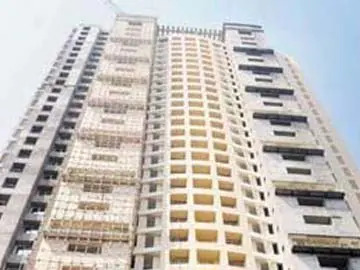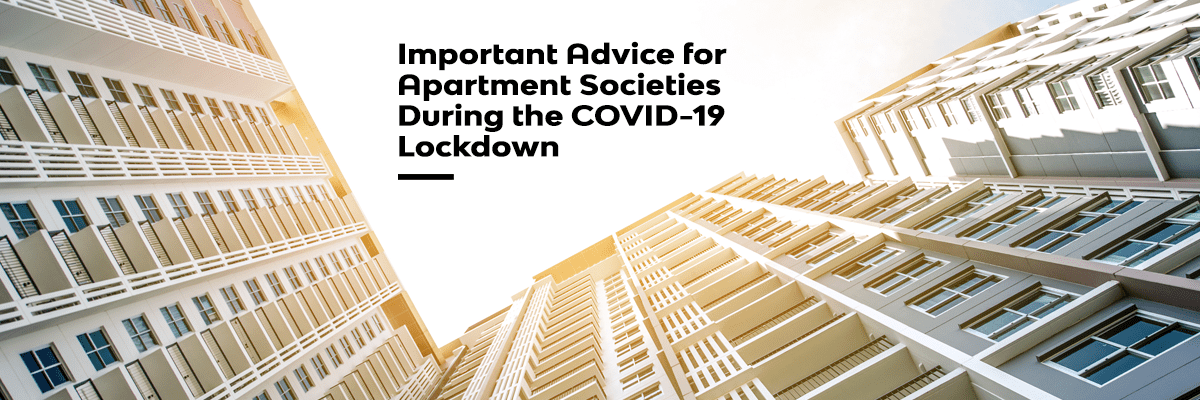Table of Contents
Quality Service Guarantee Or Painting Free

Get a rental agreement with doorstep delivery

Find the BEST deals and get unbelievable DISCOUNTS directly from builders!

5-Star rated painters, premium paints and services at the BEST PRICES!
Loved what you read? Share it with others!

Housing Society Rules and Regulations for Tenants
Table of Contents
Housing society rules and regulations for tenants are like the unwritten rules of a close-knit community. They're not just a set of do's and don'ts; they're the secret sauce that keeps everyone living together in harmony. In this blog, we'll unravel the mysteries of tenant rights and responsibilities that often seem complex but are quite straightforward.
Understanding Renters’ Rights and Responsibilities in Housing Societies
When it comes to tenant rights within housing societies, it might seem like a complex journey to navigate. However, tenants need to have a good grasp of their rights to ensure a smooth and respectful experience during their tenancy. This knowledge plays a vital role in fostering a friendly and cooperative relationship between tenants and landlords, ultimately preserving the harmony within housing societies.
1. Legal Agreements and Documentation
In the complex world of tenant-landlord relationships, there's one document that plays a pivotal role in ensuring everyone is on the same page – the lease agreement. This isn't just a bunch of legal jargon; it's your safety net, protecting both you and your landlord.
Quality Service Guarantee Or Painting Free

Get a rental agreement with doorstep delivery

Find the BEST deals and get unbelievable DISCOUNTS directly from builders!

5-Star rated painters, premium paints and services at the BEST PRICES!
For tenants, the lease agreement is like a superhero's shield, making sure your rights are crystal clear and safeguarded. It spells out the terms of your stay, including the rent, how long you can stay, and other important details. It's your roadmap for a smooth tenancy.
But here's the thing – it's not enough to just have a lease agreement. You need your very own copy of it. This isn't just some paper; it's proof of your rights and a reference point if there are ever any disagreements. With your copy in hand, you're always armed with the info you need to stand up for your rights and make smart choices about your place.
2. Living Conditions and Maintenance
A fundamental right of every tenant is to reside in a space that is not only safe but also conducive to a healthy living environment. The concept of habitability extends beyond the mere structure of the residence; it encompasses aspects such as sanitation, security, and proper maintenance. Tenants are entitled to a home that is free from hazards and defects, a place where they can live comfortably and securely.
However, the responsibility of maintaining this habitability is not a one-sided affair. While landlords are obligated to ensure that the property is in a livable condition at the start of the tenancy, tenants too play a pivotal role. They must maintain the cleanliness and integrity of the property during their stay. In cases where repairs or restorations become necessary, tenants must communicate with their landlords to address these issues promptly. The synergy between tenant and landlord in maintaining the property not only fosters a healthy living environment but also preserves the value and longevity of the property.
3. Privacy and Respect
Privacy in a rental agreement is a right, not a privilege. Tenants have the unequivocal right to enjoy their rented space without unwarranted intrusions.
The landlord's right to access the property is not absolute and must be exercised with respect and consideration for the tenant's privacy. This involves providing adequate notice before entering the premises, typically 24 hours, and doing so at reasonable times. Such respect for boundaries is pivotal in fostering a relationship based on mutual respect and understanding.
Moreover, this right to privacy extends to the tenant's lifestyle choices, including the right to host guests and live their lives without undue interference, as long as it adheres to the agreed-upon terms of the lease and the societal norms. This respect for privacy is a cornerstone of trust in the tenant-landlord relationship, ensuring that the tenants feel genuinely at home in their rented space.
Responsibilities and Duties of Tenants
Living in a housing society comes with its share of responsibilities and duties, especially for tenants. These duties, if adhered to diligently, ensure a harmonious and respectful living environment for all residents. Let's delve into the key responsibilities every tenant should be aware of:
1. Financial Obligations
The cornerstone of a tenant's responsibilities lies in their financial commitments. Timely payment of rent is paramount. Rent is not just a fee for occupying a space; it's a commitment to your landlord and a reflection of your reliability.
Besides the monthly rent, tenants often have to manage utility bills, which may include electricity, water, and gas. These are not just expenses but responsibilities that ensure the smooth functioning of the household. It's crucial to understand the terms of your lease agreement regarding these payments. Some agreements might include utilities in the rent, while others would require tenants to pay them separately.
Moreover, tenants should be aware of any other financial obligations agreed upon in the lease, such as Society Maintenance Charges. Understanding these nuances and adhering to them is not only a legal requirement but also a mark of a responsible tenant.
2. Maintenance and Care of Property
A home is more than just walls and a roof; it's a space that demands care and attention. As a tenant, maintaining the property is a key responsibility.
This doesn't just mean keeping it clean but also ensuring that all fixtures and appliances are in working order. Reporting any damages immediately to the landlord is not only considerate but often a requirement in rental agreements. Whether it's a leaking faucet or a malfunctioning appliance, prompt reporting can prevent minor issues from becoming major problems.
Tenants should also undertake minor maintenance tasks themselves, such as replacing light bulbs or keeping drains clear. However, for more significant repairs or issues, it's important to coordinate with the landlord. Remember, taking good care of the property is not just about avoiding damage; it's about respecting the space you call home.
3. Societal Conduct and Compliance
Living in a housing society is akin to being part of a community. As such, tenants must conduct themselves in a manner that respects the norms and rules of the society. This means being mindful of noise levels, disposing of waste properly, and using common areas with consideration for others. Each society might have its own set of rules or a code of conduct, and tenants need to familiarise themselves with these.
Respecting neighbours, adhering to society guidelines on the use of amenities like gyms, pools, or parks, and participating in community activities when possible, all contribute to a positive living environment. Compliance with these societal norms is not just about following rules; it's about fostering a community spirit and ensuring a peaceful coexistence with your neighbours.
Understanding Amenities and Facilities
Living in a housing society offers numerous benefits, with access to various amenities being one of the most significant. Tenants enjoy the privilege of using facilities that enhance their living experience. However, this access comes with an understanding of and adherence to certain guidelines.
Access to Society Amenities
- Tenants enjoy the benefit of using common facilities like parks, gyms, swimming pools, and community halls.
- These amenities enhance living experiences and foster community spirit.
Adherence to Society Guidelines
- Tenants must follow the rules set by the housing society for using these facilities.
- Guidelines may include specific hours for facility usage or rules for booking communal spaces.
Responsible Use of Facilities
- Tenants should use amenities responsibly, respecting operational hours and safety protocols.
- Maintaining decorum, such as controlling noise levels during events in common areas, is essential.
Contribution to Maintenance
- Tenants have a role in the upkeep of amenities, possibly through maintenance fees or adhering to cleanliness standards.
- Ensuring facilities are left in good condition is a shared responsibility.
Seeking Clarification and Involvement
- In case of unclear or restrictive rules, tenants should seek clarification from the society’s managing committee.
- Participation in society meetings can ensure tenants' concerns and suggestions are considered.
Access to amenities in a housing society is a privilege that enhances the living experience of tenants. However, it is accompanied by a responsibility to use these facilities considerately and by society's rules. By doing so, tenants contribute to maintaining a harmonious and enjoyable environment for all residents.
Eviction and Legal Recourse
In the realm of housing societies, understanding the protocols for eviction and the legal rights available to tenants is crucial. This knowledge not only ensures a smooth tenant-landlord relationship but also safeguards the interests of both parties. Let's delve into the intricacies of eviction procedures and the legal recourse available to tenants in case of disputes.
Eviction Protocols
- Non-payment of Rent: A tenant can be evicted for not paying rent as agreed in the lease. Landlords must provide a notice, allowing time for payment or vacating.
- Lease Violations: Activities like subletting without permission, illegal use of the property, or causing significant damage can lead to eviction. Tenants should receive a formal notice specifying the violation and a timeframe to rectify the issue.
- Landlord’s Personal Use: If the landlord needs the property for personal reasons or for major renovations, they can ask the tenant to leave, typically with a proper notice period as defined in the lease.
Legal Rights and Complaints
- Seeking Resolution: Tenants should first attempt to resolve disputes through direct communication with the landlord. If unsuccessful, they can consult legal aid or a property lawyer.
- Documentation and Records: Maintaining detailed records of all interactions, payments, and relevant documents is crucial for supporting the tenant's case.
- Filing Complaints: In cases of harassment or illegal eviction attempts, tenants can file complaints with housing authorities or the police, and approach the civil court for lease-related disputes.
The Role of the Housing Society in Tenant-Landlord Relationships
In the dynamic world of housing societies, understanding the role and limitations of the society itself in tenant-landlord relationships is crucial. While the direct interaction typically lies between the tenant and the landlord, the housing society plays a significant, albeit specific, role in this ecosystem. Here are the key aspects of this role:
Guardian of Collective Interests
- Enforces society's rules and regulations equally among all residents, including tenants.
- Ensures maintenance of decorum, safety, and living standards through guidelines on noise levels, use of common areas, and parking norms.
Limited Authority in Tenant-Landlord Agreements
- Does not interfere in rental negotiations or specific terms of tenant-landlord agreements.
- Lacks legal power to impose additional conditions or alter rental agreements.
Upholding Impartiality
- Maintains fair treatment for all residents, avoiding discrimination based on race, religion, or marital status.
- Ensures equal application of rules to both owners and tenants.
Role in Dispute Resolution
- Acts as a mediator or facilitator in conflicts, without enforcing resolutions.
- Provides support with documentation and information about societal norms when required.
Non-Judicial Entity
- Cannot act as a legal authority in disputes between tenants and landlords.
- Focuses on fostering dialogue and understanding rather than legal intervention.
Understanding housing society rules and regulations for tenants is not just about navigating the complexities of legal agreements or adhering to societal norms. It's about creating a respectful and harmonious environment for both tenants and landlords.
From ensuring the right to a habitable residence to maintaining the decorum of society, each aspect plays a crucial role in fostering a peaceful coexistence. For tenants, understanding these rules means being better equipped to protect their rights and fulfil their responsibilities.
Furthermore, navigating these complexities can be challenging, which is where NoBroker's legal services can be invaluable. Whether it's interpreting lease agreements, resolving disputes, or simply seeking advice on tenant rights and duties, NoBroker offers expert guidance.
By leveraging such professional assistance, tenants can ensure their tenancy is not only legally compliant but also conducive to a harmonious living experience within their housing society.
FAQ’s
Tenants are typically responsible for any damage beyond normal wear and tear, such as broken fixtures, unreported maintenance issues that worsen over time, or damage caused by negligence.
Tenants are primarily responsible for timely rent payments, maintaining the property's cleanliness and condition, and adhering to the terms outlined in their rental agreement.
Tenant utility responsibility typically involves the tenant covering costs for utilities like electricity, water, and gas, as specified in the rental agreement.
Key rental house rules and regulations typically include timely rent payment, maintaining the property's condition, adhering to noise level norms, and respecting the privacy and rights of neighbours.
The landlord-tenant act serves as a legal framework to fairly address and resolve disputes between landlords and tenants, ensuring both parties' rights are protected.
Loved what you read? Share it with others!
Most Viewed Articles

Pet Rules in Housing Society: Legal Sections and Rules for Apartment Residents in India
January 31, 2025
77985+ views

Housing Society Rules and Regulations for Tenants
January 31, 2025
26234+ views

Get the Full Story Behind the Adarsh Housing Society Scam Now
January 31, 2025
24630+ views

Co-operative Housing Society: Features, Types and Registration Process
January 31, 2025
15737+ views

Important Advice for Apartment Society Residents During the Lockdown
January 31, 2025
5568+ views
Recent blogs in
Pet Rules in Housing Society: Legal Sections and Rules for Apartment Residents in India
January 31, 2025 by SIDDHARTH CHANDRASHEKHAR
Important Advice for Apartment Society Residents During the Lockdown
January 31, 2025 by NoBroker.com
लॉकडाउन के दौरान अपार्टमेंट सोसाइटी के निवासियों के लिए ज़रूरी सलाह
January 31, 2025 by NoBroker.com
लॉकडाऊन दरम्यान अपार्टमेंट सोसायटीच्या रहिवाशांसाठी महत्त्वाचा सल्ला
January 31, 2025 by NoBroker.com
Co-operative Housing Society: Features, Types and Registration Process
January 31, 2025 by Vivek Mishra









 Full RM + FRM support
Full RM + FRM support
Join the conversation!